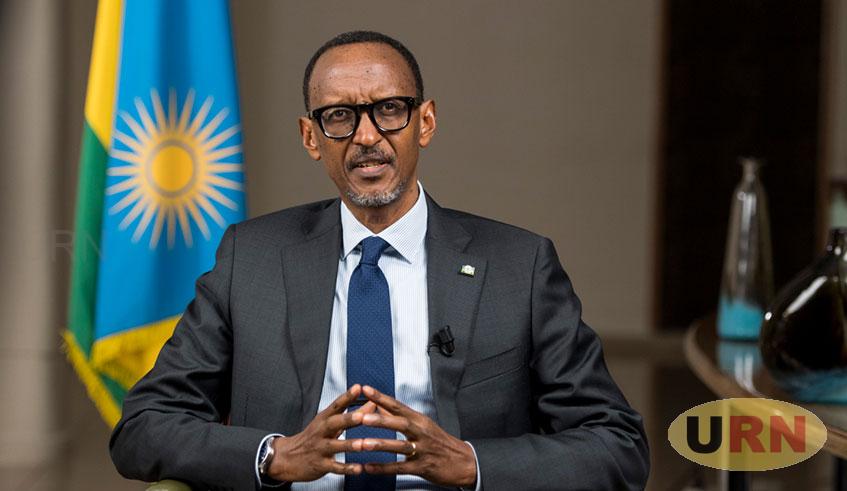Human Rights Watch has released a report highlighting the use of violence, legal tactics, and intimidation by Rwandan authorities and their affiliates to suppress criticism from Rwandans living abroad. The objective appears to be the preservation of Rwanda’s positive image, the stifling of potential dissent from overseas, and the reinforcement of a stern message for critics within the country.
In the 115-page report titled “‘Join Us or Die’: Rwanda’s Extraterritorial Repression,” Human Rights Watch outlines a comprehensive set of tactics that collectively form a global network of repression. This network aims not only to silence opposing voices but also to deter potential critics. The methods employed include physical violence, such as killings and enforced disappearances, surveillance, misuse of domestic and international law enforcement, mistreatment of relatives in Rwanda, and damage to reputations through online harassment. These actions are intended to isolate potential critics.
Tirana Hassan, Executive Director at Human Rights Watch, states, “Rwandans living abroad, even those thousands of miles away from Rwanda, censor themselves, refrain from political activism, and live in fear of traveling, being attacked, or seeing their relatives in Rwanda targeted.” She emphasizes that Rwanda’s international partners should recognize these actions as a result of decades of impunity enjoyed by the ruling Rwandan Patriotic Front.
The report draws on interviews with over 150 individuals globally to shed light on the tactics employed by Rwandan authorities and their proxies against Rwandans living abroad. The documented abuses target Rwandans residing in various countries, including Australia, Belgium, Canada, France, Kenya, Mozambique, South Africa, Tanzania, Uganda, the United Kingdom, and the United States, as well as their relatives in Rwanda.
The testimonies illustrate the relentless nature of the attacks against those who oppose the government or refuse to support it or join its diaspora associations worldwide. Multiple tactics are often used concurrently, and if one fails, others are employed until the targeted individual is worn down. Additionally, refugees and asylum seekers, by not returning to Rwanda and by criticizing the Rwandan authorities from abroad, challenge the image the government seeks to project.
Human Rights Watch has documented over a dozen cases of killings, kidnappings or attempted kidnappings, enforced disappearances, and physical attacks against Rwandans living abroad. The Rwandan government has employed international police cooperation, including Interpol Red Notices, judicial mechanisms, and extradition requests to seek the deportation of critics or dissidents to Rwanda.
In many instances, interviewees reported that their relatives in Rwanda had faced arbitrary detention, torture, harassment, and movement restrictions to pressure, punish, or silence their family members living abroad. While Rwanda’s President Paul Kagame and the ruling Rwandan Patriotic Front (RPF) have been recognized for the country’s post-genocide recovery and development, the report highlights that progress in civil and political rights has not kept pace. The government has criminalized the creation of a “hostile international opinion” of the Rwandan government, using it to prosecute and intimidate critics and journalists within Rwanda.
As Rwanda has gained international prominence, hosting high-profile events and becoming a major contributor to peacekeeping missions, the international community, including the United Nations and its partners, has failed to fully acknowledge the extent and severity of human rights violations in the country. For example, in Mozambique, where Rwandan troops have been deployed to restore peace and security, Human Rights Watch has documented instances of violence and threats against Rwandans. This includes killings, enforced disappearances, and kidnapping attempts since May 2021, with some Rwandan refugees reporting threats from Rwandan embassy officials.
The involvement of individuals closely associated with the Rwandan government, along with the persecution of government critics within Rwanda, raises concerns about official state tolerance, acquiescence, or collusion in these attacks. Human Rights Watch also found that Rwandan embassy officials, members of the Rwandan Community Abroad, and others affiliated with them have monitored and pressured Rwandans abroad to join them, return to Rwanda, or cease criticizing the government. Some interviewees, including genocide survivors, reported online attacks for criticizing the ruling party. In some cases, family members were coerced into denouncing their relatives on pro-government YouTube channels.
The targeting of relatives is an especially vicious form of control, illustrating the extensive nature of repression abroad that extends beyond high-profile cases of violence. Rwandan authorities’ actions, targeting actual or perceived dissidents abroad and their relatives, have violated a range of human rights, including the right to life, physical security, liberty, freedom from torture, freedom of movement, privacy, freedom of expression and association, and the right to a fair trial. The report concludes by urging governments worldwide and international institutions to hold Rwanda accountable for its human rights violations, both within its borders and abroad.



